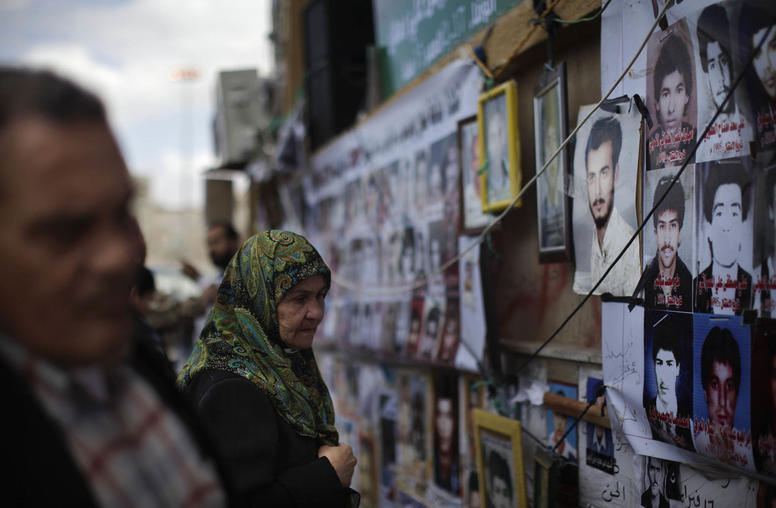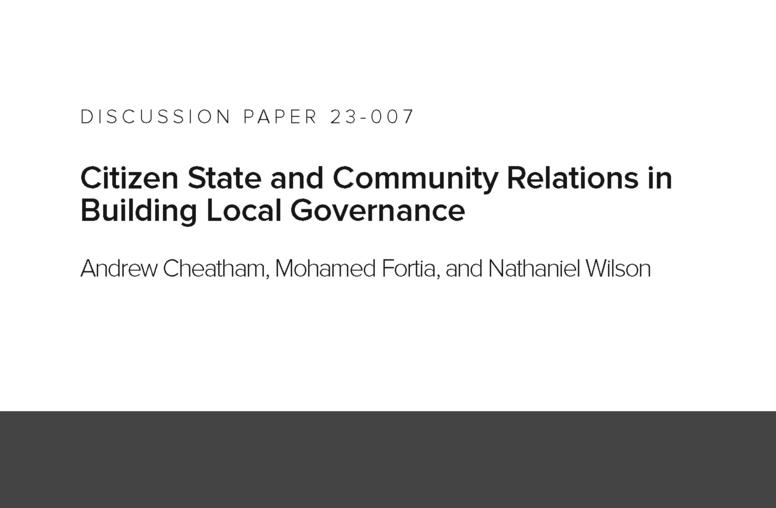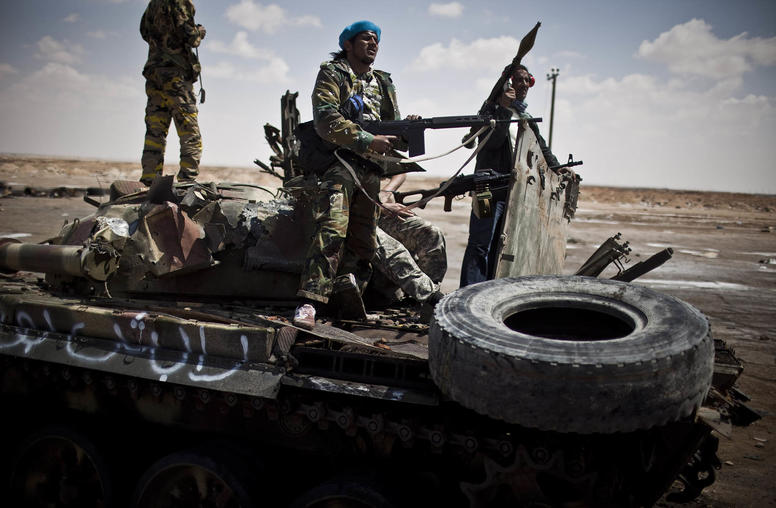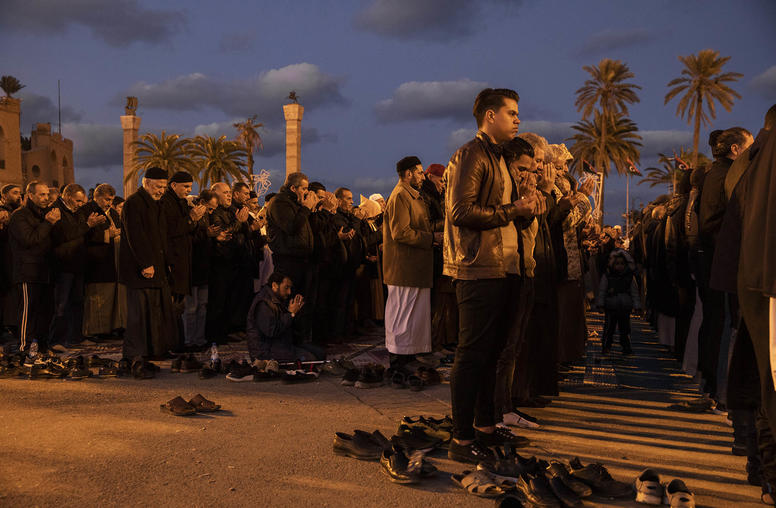Clinton Visits Tripoli
Robert Perito, director USIP’s Security Sector Governance Center, provides some context for Secretary of State Hillary Rodham Clinton's visit to Libya.
October 18, 2011
Secretary of State Hillary Rodham Clinton paid a brief visit to Libya Oct. 18 to provide assurances to Libya’s new leaders that the U.S. is standing behind the country and to pledge millions of dollars in new aid, including medical aid for the war wounded. The stop was the first visit by a cabinet-level American official since Libyan leader Moammar Qaddafi was ousted earlier this year. Robert Perito, who directs USIP’s Security Sector Governance Center, provides some context for the visit.
Secretary Clinton is in Libya in part to reassure the Libyans that the US stands beside them and to help them track down thousands upon thousands of weapons. What is your current sense of how doable this task is?
Tracking down Libya weapons is a high priority. Clearly the weapons looted from Saddam’s arsenals contributed to the insurgency in Iraq. The most serious weapons are the shoulder fired anti-aircraft missiles (SAMS) that can bring down military helicopters and commercial airliners. Finding and recovering such weapons presents a major challenge. Qaddafi had 20,000 SAMS in his arsenals. Many were destroyed by NATO bombing, but the Libyan Transitional Council estimates that 5,000 may be in circulation. Disturbingly, Egyptian officials have intercepted Libyan SAMS in the smuggling tunnels connecting Egypt to the Gaza Strip. U.S. efforts to recover the SAMS are centered on a force of 50 experts now assisting the Libyans to recover these weapons. Already they have found empty SAM cases in ammunition bunkers around the country ransacked by loyalists and rebel forces. If past experience is a guide, some weapons will find their way to terrorists groups and hostile states that threaten the U.S. and its allies.
Secretary Clinton is announcing medical aid for some of the 15,000 war-wounded. What is your sense that the Libyans have the capacity to absorb and use wisely not only medical aid but aid from the US generally? Is the degree to which it will help corrupt the system concerning?
Medical aid is part of a $135 million package of U.S. assistance for Libyan civilians impacted by the conflict. Of the 15,000 war-wounded, the UN estimates that 1,500 are amputees, while others have serious injuries that will require long-term care. Libya’s already inadequate medical system was further degraded during conflict through the destruction of facilities, loss of medical personnel and the expenditure of medicines and supplies to treat war wounded. U.S. aid will help to replenish stocks and refurbish facilities, but long-term improvements will depend upon the National Transitional Council’s ability to utilize external assistance effectively. Post-conflict recovery is at an early stage and it is difficult to make an assessment at this time.
Explore Further
- Countries and Regions: Libya
- Building Libya's Future: A Conversation with the Libyan Minister of Infrastructure and Reconstruction
Introduction by Abiodun Williams and Moderated by Manal Omar | September 13, 2011



